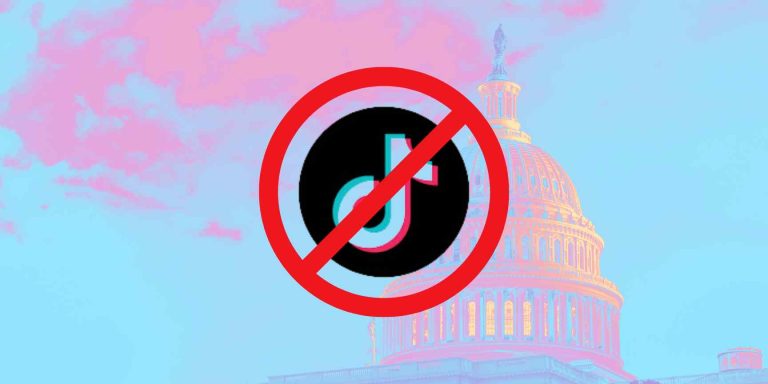Understanding the Potential Impact of TikTok Ban on Small Business
In today’s rapidly evolving digital world, TikTok has stood out as a pivotal platform for digital marketing, particularly for small businesses. With over 100 million users in America and nearly 7 million businesses utilizing its services, TikTok’s influence is palpable. The looming ban, suggested by the US Senate on March 13, 2024, has put ByteDance, TikTok’s parent company, on alert to divest within six months or risk being barred from US app stores and web-hosting services.
TikTok’s Unique Algorithm and Customization
TikTok’s algorithm stands out due to its complex behavioral data analysis, optimizing content delivery so effectively that small businesses can target audiences with exceptional accuracy. As TikTok’s CEO, Shou Chew, explained at TED2023, TikTok’s recommendation system is distinct because it prioritizes user engagement uniquely, considering factors like video completion rates and repeat viewership, which enhances content visibility.
Implications of the Proposed Ban
The potential ban could disrupt this finely-tuned ecosystem, significantly impacting small businesses that rely on TikTok’s targeted reach. The “Protecting Americans from Foreign Adversary Controlled Applications Act” necessitates ByteDance to relinquish TikTok or face a comprehensive ban. Despite opposition, including from former President Donald Trump and a substantial $2.1 million ad campaign by TikTok, the platform’s fate hangs in the balance, with potential buyers like Microsoft and Oracle looming.
TikTok’s Ban Impact on Small Businesses
Many small businesses thrive on TikTok’s ability to virally promote content at low costs. A ban could jeopardize this, forcing businesses to seek alternatives that may not offer the same level of engagement, reach or its cost-effectiveness.
TikTok CEO Shou Chew emphasized three main goals driving TikTok’s design:
Engagement: Focusing on maximizing user engagement through personalized content that encourages longer watch times and more interactions.
Discoverability: Enhancing the ability for new and diverse content to be discovered by users, supporting a wide range of creators.
Safety: Prioritizing the safety and security of the platform’s community by implementing rigorous data protection and content moderation practices.
In his discussion, Chew emphasized the unique advantages of TikTok’s content delivery, which are irreplaceable on other platforms.
What a ban would mean for TikTok users
If TikTok were banned in the U.S., its over 100 million users might still find ways to access it, possibly through virtual private networks (VPN). Despite being removed from app stores, experts believe that TikTok’s dedicated U.S. fanbase would likely continue to use the app. According to Justin Cappos, a professor at New York University, while it would limit the app’s reach, access wouldn’t be completely cut off. Gabriel Wildau from Teneo suggests that tech-savvy individuals would likely bypass the ban, keeping TikTok alive in some capacity in the U.S. market.
Exploring other TikTok Alternatives
Despite the potential ban, small businesses must consider other platforms. Instagram Reels and YouTube offer similar video-based marketing opportunities, though their algorithms work differently. LinkedIn could serve B2B businesses well, providing a more professional audience.
“As a small business owner residing in the US, I’ve seen first-hand the power of TikTok’s personalized content delivery. It’s allowed us to connect with our target audience in ways we never thought possible. It’s helped us build a fan base that would likely have taken us years to acquire. The potential ban is concerning because it could disrupt our digital marketing efforts significantly. We’re now exploring other social media platforms as alternatives, but the unique boost we get from TikTok will likely be hard to replace.”
Businesses that rely on TikTok for customer engagement and brand visibility may find themselves scrambling or doing the “wait and see”. The ban could also potentially lead to a loss of the audience that businesses have strived hard to build on the platform, bringing all that growth to a halt. The full extent of the impact will depend on the final outcome of the legislation and how small business adapt to these changes.
TikTok as a Marketing Tool: How TikTok has helped Small Business
TikTok’s contribution to contemporary digital marketing strategies is undeniable. With its intuitive design and potent recommendation system, it has become an essential tool for small businesses aiming to connect with their target market.
The platform’s bite-sized video format fosters originality and innovation, enabling businesses to present their products and services in an entertaining and engaging manner. The ‘For You’ page, TikTok’s tailored content feed, offers a unique chance for businesses to reach potential customers who are likely to have an interest in their products.
Here are just a few examples of small business marketing on TikTok.
Cake Decorating Business: A cake decorator uses TikTok to share behind-the-scenes videos of their kitchen, tips for making perfect icing, recipes, and event highlights. This content helps demonstrate their expertise and attract customers interested in baking and event catering.
Target Audience Engagement: Small businesses use TikTok to identify and engage with their target audience by creating content that resonates with them. By using popular hashtags and engaging in conversations, they increase their visibility and brand awareness.
TikTok Ads: Small businesses efficiently use TikTok ads to reach targeted audiences without significant investment in production. Ads are tailored by demographics like age, gender, and location, enhancing direct communication with potential customers.
TikTok Shop: A small business can use TikTok Shop to grow by creating a seamless shopping experience directly on TikTok. A boutique that sells handmade jewelry can utilize TikTok Shop by showcasing their products in short, engaging videos. They can feature how-to-wear tutorials or behind-the-scenes footage of the making process, which captures the viewers’ interest. With TikTok Shop, viewers can click on the product links embedded in the video or the product showcase tab to make a purchase instantly without leaving the TikTok app. This integrated shopping experience can significantly boost conversion rates by reducing the steps to purchase.
Exploring Alternatives: Digital Marketing Strategies Post-TikTok Ban for Small Businesses
In the face of the proposed TikTok ban, small businesses may be forced to pivot their digital marketing strategies, considering the potential impact of this ban on their operations. Fortunately, there are several other social media platforms that offer potential for small business marketing.
Platforms like Instagram and Facebook, with their established user bases and business-friendly features, can serve as viable alternatives. Instagram Reels, for instance, offers a similar short-video format to TikTok, and Facebook’s ad platform provides robust targeting options.
YouTube is another platform to consider. While its format is different, its vast user base and the popularity of video content make it a strong contender. YouTube Shorts can potentially rival TikTok, as both platforms cater to the growing demand for short-form video content. YouTube Shorts benefits from YouTube’s vast user base and robust creator ecosystem, offering seamless integration with the broader content on the platform. It also provides creators with the opportunity to monetize their content through YouTube’s established advertising system, which can be appealing especially for creators looking for revenue generation. However, TikTok’s highly personalized recommendation algorithm and its focus on trending content and viral challenges make it a strong competitor in retaining user engagement and attracting new users.
LinkedIn, while more professional in nature, can be particularly useful for B2B businesses.
In adjusting their digital marketing strategies, businesses should consider their target audience, the nature of their products or services, and the platforms where they are most likely to engage. While the potential TikTok ban poses challenges, it also offers an opportunity for businesses to diversify their digital marketing efforts and explore new avenues for customer engagement.
Navigating the Impact of TikTok Ban on Small Businesses: Conclusions and Future Strategies
The potential ban on TikTok in the U.S. presents a significant shift in the digital marketing landscape, with a notable impact on small businesses. Small businesses, many of which have leveraged the platform’s unique features for targeted marketing, could face challenges in maintaining their online visibility and customer engagement.
“At AZENCE, we’re accustomed to keeping us digitally “mobile”. TikTok has been a game-changer for many of our clients, especially so in building brand awareness and market penetration. The potential ban on TikTok is concerning not just for our USA clients, but for the broader social media landscape. It definitely is a huge set back no doubt, but we still got lots of tricks up our sleeves for our clients to explore while we wait to see how this situation unfolds. ” – Tricia Ang, CXO, AZENCE
Nevertheless, it’s essential for businesses to stay resilient and adaptable. Other social media platforms offer viable alternatives for video distribution and consumption, and the key is to understand which platform aligns best with your business needs and where your target audience is.
TikTok’s Data Protection Proposal: “Project Texas”
TikTok has initiated “Project Texas,” a $1.5 billion data-security initiative, to address concerns about potential data misuse by the Chinese government. Developed in partnership with Oracle, an Austin-based company, this plan aims to store American users’ data on U.S. servers, managed by a U.S.-based team. The program emerges amid ongoing legal disputes over TikTok’s Chinese ownership under both the Trump and Biden administrations, with the latter contemplating actions including a potential ban unless TikTok secures an American buyer.
In the Midst of this TikTok Mess, What Should Small Business Do?
While the future of TikTok remains uncertain, this situation underscores the importance of a diversified digital marketing strategy, especially considering the potential impact of the disruption of the TikTok ban on small business. By spreading their marketing efforts across a couple more targeted platforms, businesses can mitigate the risks associated with relying too heavily on a single platform.
In the face of change, the ability to adapt is crucial. With careful planning and strategic decision-making, small businesses can navigate these changes and continue to thrive in their digital marketing efforts. In the age of AI, leveraging AI or gen-AI in our efforts can accelerate our pace.





